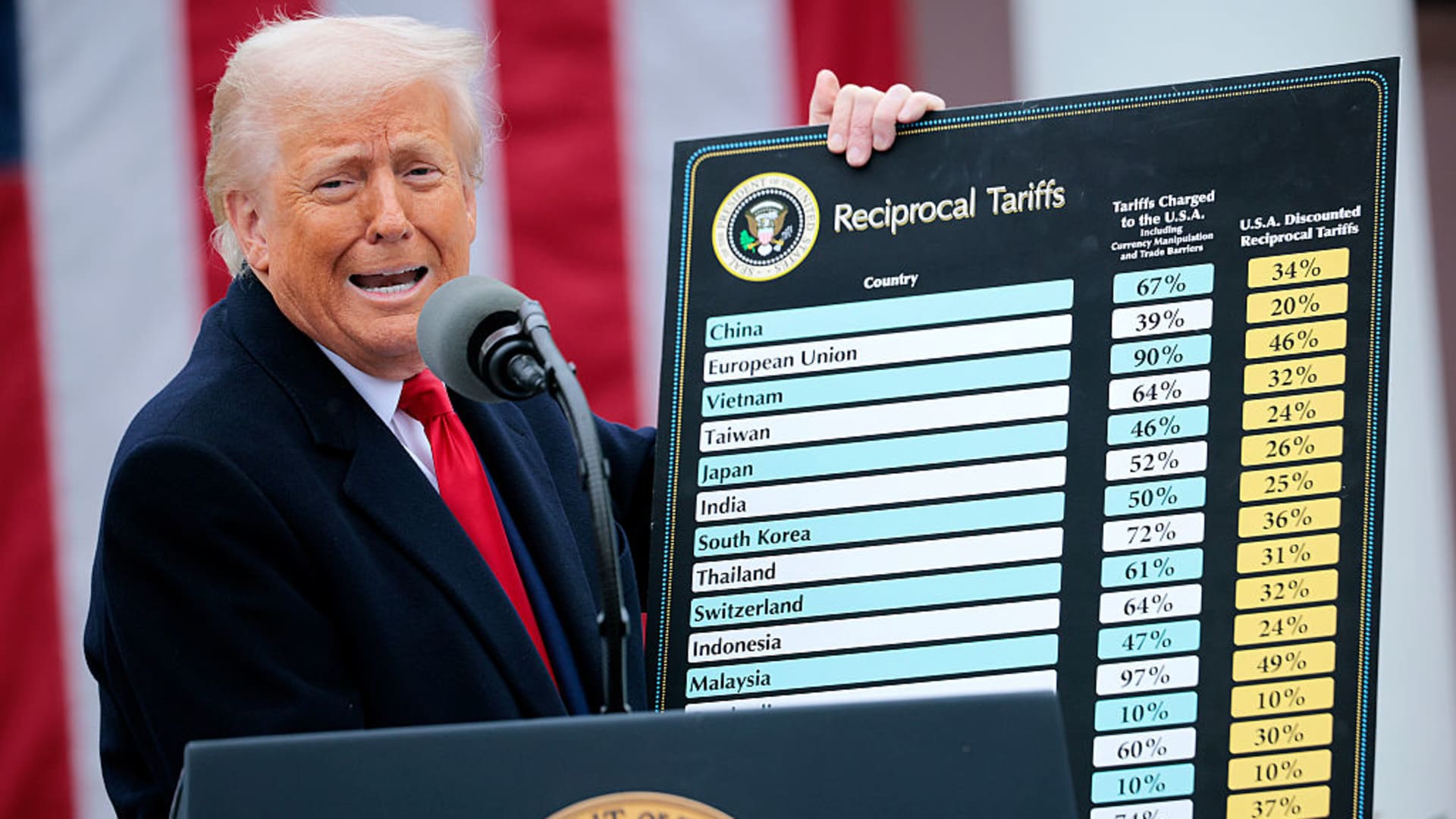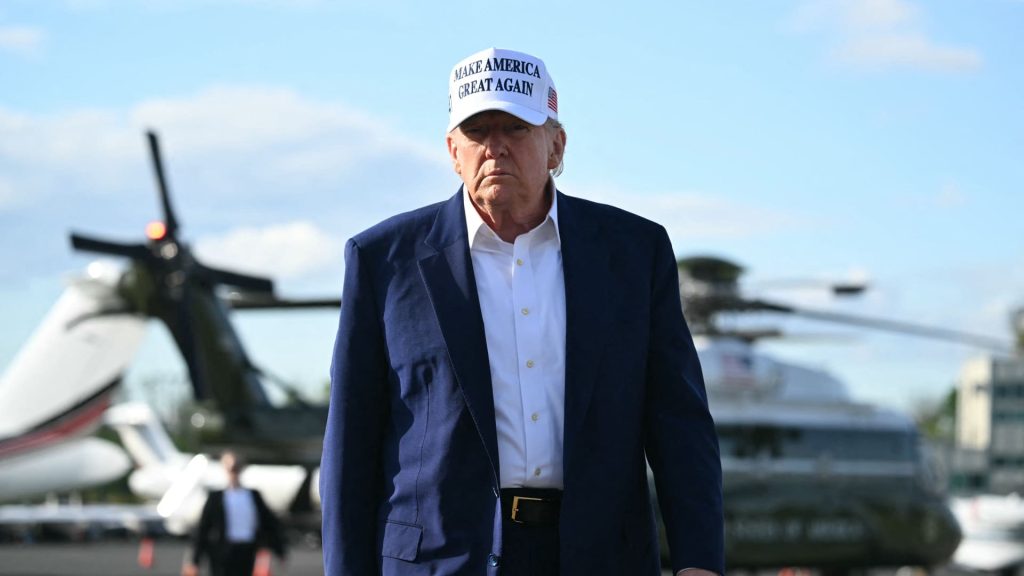Now Reading: Court strikes down Trump reciprocal tariffs
-
01
Court strikes down Trump reciprocal tariffs
Court strikes down Trump reciprocal tariffs

During a “Make America Wealthy Again” trade announcement in Washington, DC on April 2, 2025, U.S. President Donald Trump displayed a chart. A federal court recently ruled that President Trump went beyond his authority by implementing reciprocal tariffs, dealing a blow to a key aspect of his economic plans. The Court of International Trade’s three-judge panel stated that the International Emergency Economic Powers Act, which Trump cited to justify the tariffs, does not grant him the unilateral power to impose such extensive duties. The judges found that Trump’s tariff orders exceeded the authority given to him by the IEEPA. Dow futures surged by 400 points following the ruling. Typically, imposing tariffs requires approval from Congress, but Trump circumvented this by declaring a national economic emergency and using it as a basis for enforcing the tariffs independently. The Trump administration quickly appealed the court’s decision, emphasizing that the trade deficits created a national emergency, causing harm to American communities and industries. The legal battle resulting from the ruling and subsequent appeal is likely to escalate to the Supreme Court. The court’s decision to invalidate the tariffs affects not only the plaintiffs but also all impacted businesses. Trump initially announced reciprocal tariffs on April 2, followed by a 90-day pause on April 9, while maintaining a 10% baseline tariff on most imports into the country.






